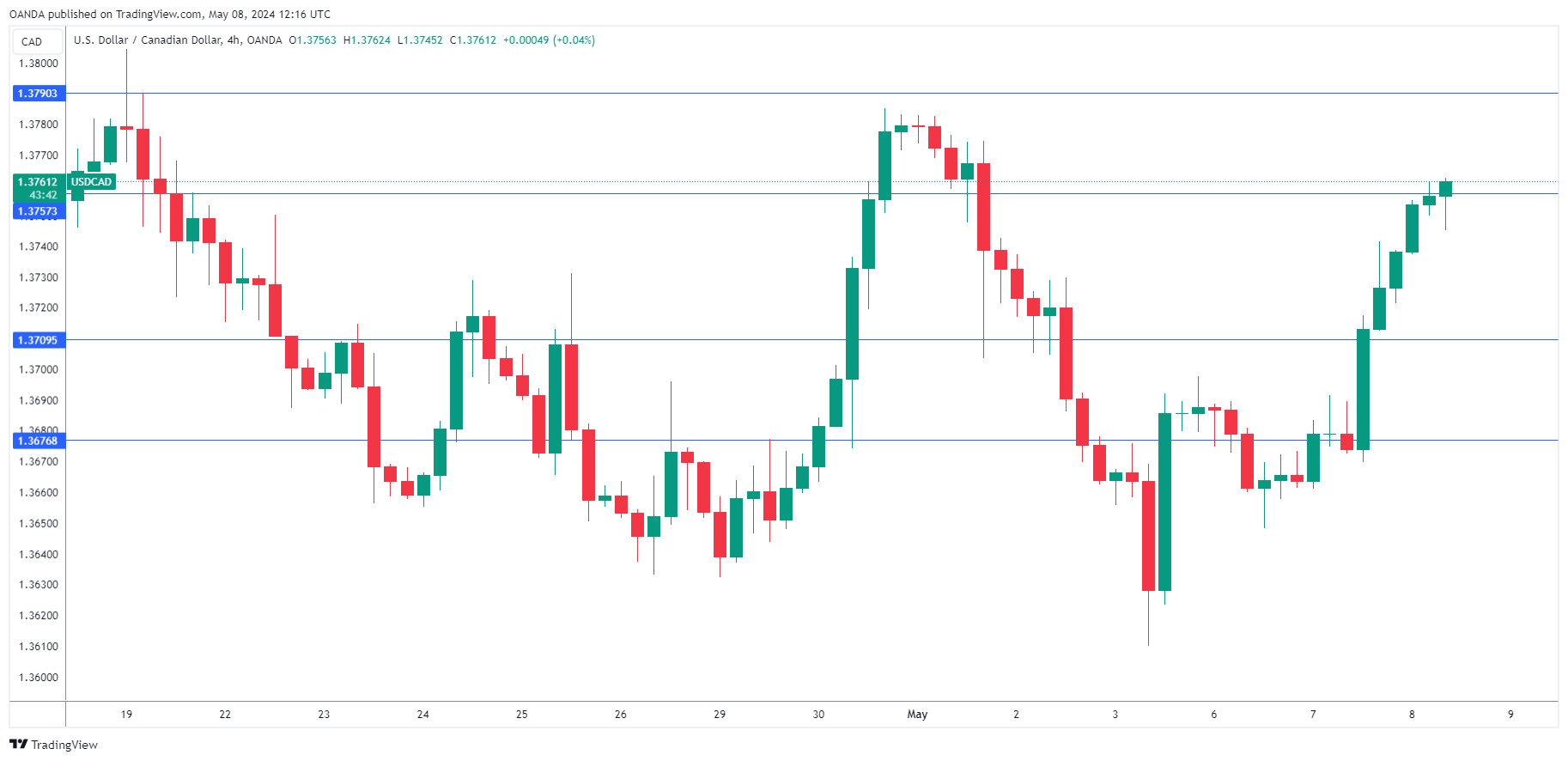USD/CAD has edged higher on Wednesday and is up 0.25%, trading at 1.3760 at the time of writing.
Canada’s Ivey PMI climbed sharply in April to 63.0, up from 57.5 in March and beating the forecast of 58.1. This marked the highest level since May 2022, indicating that purchasing managers have seen an improvement in business activity. The employment and inflation components of the PMI both rose, which points to a healthy labor market and stronger inflationary pressures.
The Bank of Canada is under pressure to provide some relief and lower interest rates, but the road to bringing inflation back down to the 2% target has not been smooth. Inflation accelerated in March, rising from 2.8% to 2.9%. BoC policy makers are hesitant to lower rates until there is evidence of price stability around 2% and that will take more time.
US nonfarm payrolls were weaker than expected last week, raising the likelihood of a rate cut from the Federal Reserve. That in turn has increased the chances of a BoC rate cut since the two economies are intertwined. The BoC would like to avoid a rate cut well before the Fed, since it would likely weaken the Canadian dollar and lead to higher inflation. The markets have priced in a June cut from the BoC but the decision will depend largely on inflation data.
Canada will release the April employment report on Friday. The economy shed 2200 jobs in March, a shocking figure as the market forecast stood at a gain of 25,900. Job growth is expected to get back on track, with an estimate of 18,000. The unemployment rate is expected to creep up to 6.2%, compared to 6.1% in March.
USD/CAD Technical
- USD/CAD is testing resistance at 1.3757. Above, there is resistance at 1.3790
- 1.3709 and 1.3676 are providing support